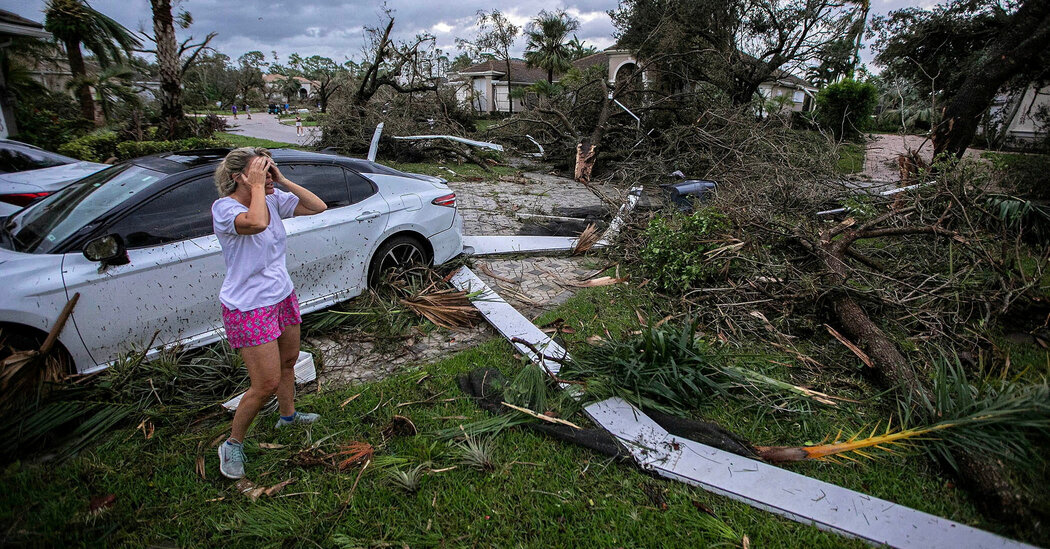As Hurricane Milton battered Florida’s Gulf Coast on Thursday, Chloe Ottani followed the news with horror from her parents’ Connecticut home. She had just evacuated her apartment at the University of Tampa for the second time in two weeks.
Ms. Ottani and other students were evacuated on Tuesday as Milton morphed into a Category 5 storm. The mayor of Tampa, Jane Castor, warned that day that those who remained in evacuation zones were “going to die.”
“I haven’t put my phone down for the last 24 hours,” Ms. Ottani, 21, said on Thursday.
By Thursday, the hurricane, which landed as a Category 3 storm, had killed at least four people and left more than 3.3 million without power as it crossed Central Florida before returning to sea. In several Gulf Coast counties, authorities were assessing the damage and clearing debris.
For Ms. Ottani and other Gulf Coast residents, this and other recent storms have taken a toll on their mental health. In 2022, Hurricane Ian pulverized large swaths of southwestern Florida. Two weeks ago, Hurricane Helene tore through many of the same communities as a Category 4 storm before plowing north through Georgia and into the Blue Ridge Mountains. With wreckage from Helene still piled up on street corners this week, many Floridians fled or fortified their homes once more as Milton, one of the strongest Atlantic hurricanes ever, approached.
Living through a single major hurricane can cause anxiety, depression and post-traumatic stress syndrome. And experiencing repeated disasters, particularly in a short period of time, can exacerbate those effects, making people more vulnerable to mental health issues and prolonging the time it takes for them to emotionally recover. One study of Florida residents who lived through Hurricanes Irma and Michael in 2017 and 2018 found that experiencing two hurricanes in such close succession compounded their psychological distress.
“It traps people in this cycle of anxiety and trauma,” said Laura Wright, a psychologist and the training director of counseling services at Florida Gulf Coast University in Fort Myers.
